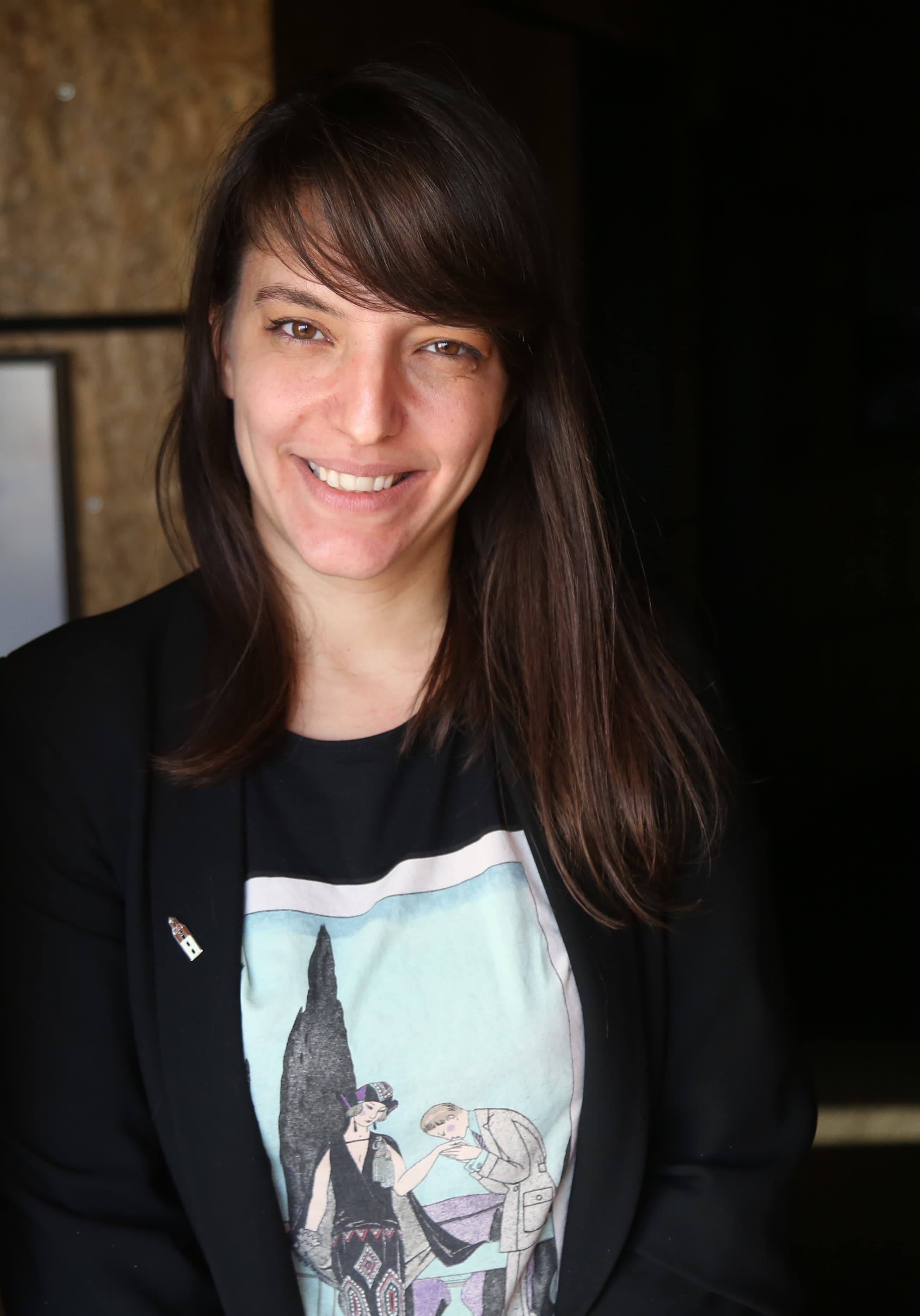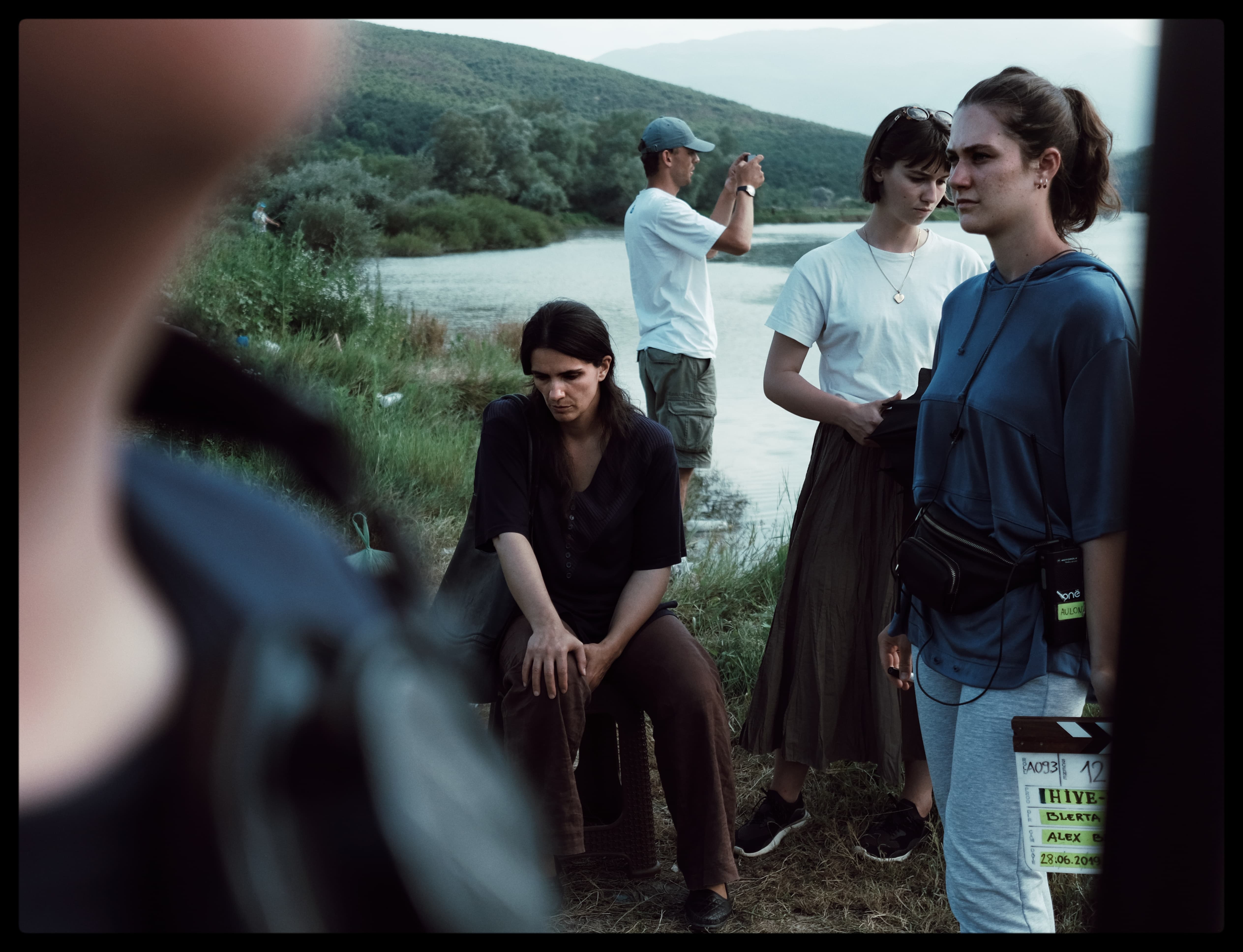The Swiss co-production “Hive” by the Kosovar-Albanian director Blerta Basholli has made waves. It is the first film in history to win the three main prizes at the 2021 Sundance Film Festival and it was shortlisted for an Oscar nomination in the Best International Feature Film category. Our author Tanya König spoke to director Blerta Basholli.
In your movie, you show the true story of Fahrije Hoti, a widow who, following her husband’s disappearance in the Kosovo war, managed to build her own Ajvar business and support her family in a patriarchal society. Why does this story resonate with the international community?
Not a lot of people know about the small country Kosovo, so oftentimes we try to explain the political situation, the culture, the tradition, the war. A lot of films become very descriptive. I didn’t want to do that. I wanted to focus on Fahrije because it is her character that inspired me, and it’s her personality that motivated me to do this film. I hope people will relate to her on a human level. We’ve all felt small at some point in our lives. Whether as teenagers in high school or because we belong to a certain nationality, color, sexuality. I thought people would relate to Fahrije, reflect on their own battles and connect to the movie in a more universal sense.
How was the movie received when it premiered at the Zurich Film Festival?
Kosovars have a strong sense of representation because we were not represented enough in the world of arts or anywhere. In Zurich, we had a big Albanian audience. Some people said I didn't portray the country well in terms of patriarchy. But others thanked me for making this film, saying ‘hearing the truth hurts but it needs to be told.’ In Kosovo, it was generally received really well, and it’s the most-watched film in Kosovo cinemas—even compared to other blockbuster movies.
Interesting to hear that some diaspora Kosovarians didn’t feel well represented by the movie…
When you’re an immigrant, your life is not easy. You feel small and underrepresented. And a lot of times people, newspapers, and journalists only write about your community when something bad happens. So you really want to also hear good news about your country.
There were two women from Kosovo who lived in Switzerland for 35 years and had never been to a cinema. But they came to the Zurich Film Festival to watch the film. This was such an honor! They thanked me for portraying the story of a woman with whom they related in some way. It was very rewarding that these women wanted to come and watch the film because it’s an audience that is hard to reach.
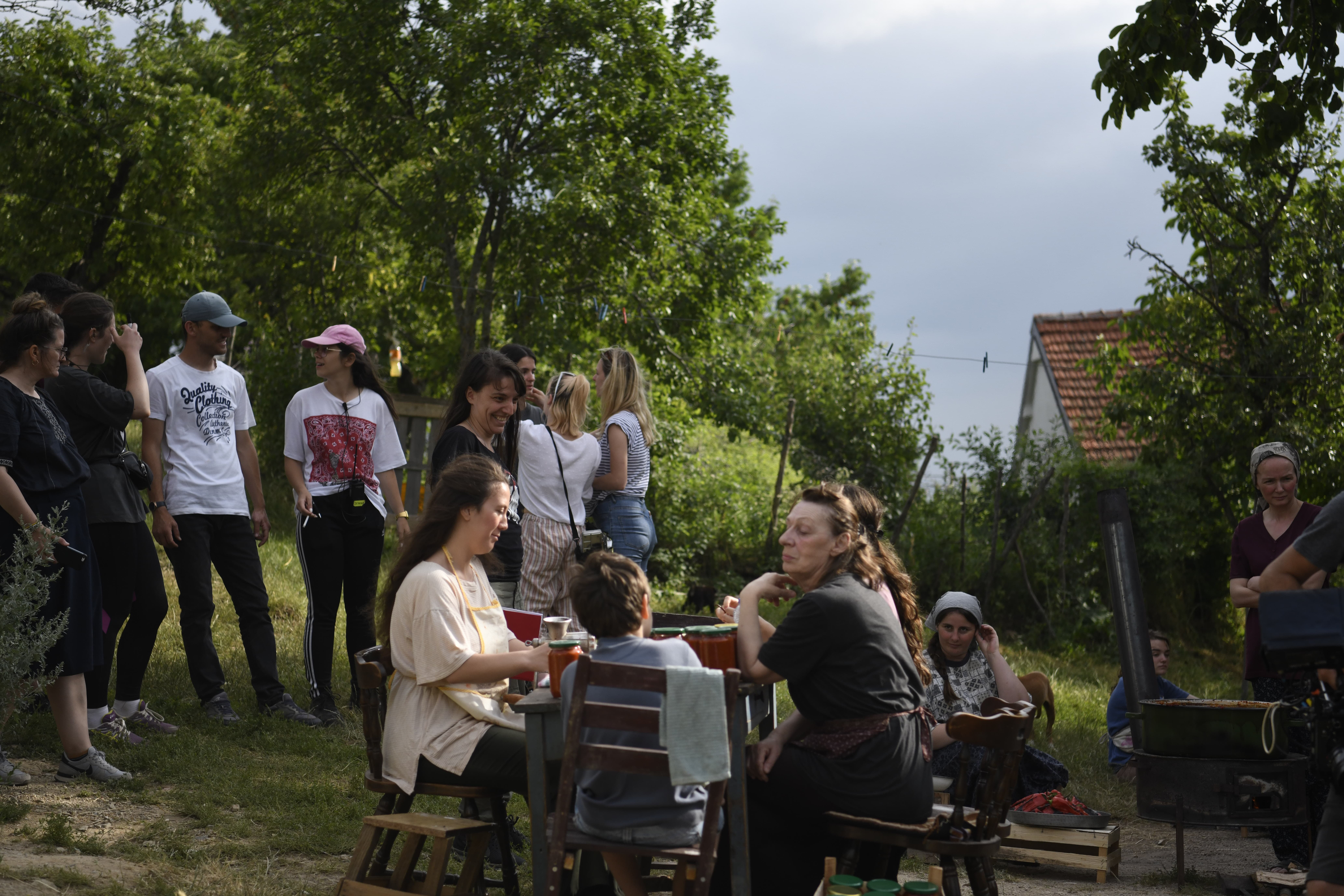
We’ve all felt small at some point in our lives.
In the movie, one also sees how Fahrije's father-in-law was against her choice to pursue a job and get a driving license. But in the end, he is proud of her and helps in the business. Nice women—bad men, you didn’t go into that trap.
That was the aim. We don't just portray bad men in the film. There is the supermarket owner who helps Fahrije. I also don’t see the father-in-law as a negative character at all. I think he is being as supportive as he can be while caught between tradition and the wish to help her. And in the end, he does help her. It wasn’t easy for an old man like him, who was also in pain after losing his son.
There were other men in the village who cursed Fahrije and threw stones at her. When the movie was screened in the neighboring village some people felt offended by the way they were portrayed. However, in general many appreciated the movie for showing emancipation, empowerment, and resilience.
What was Fahrije's role in society after her husband went missing?
People expect a widow to close herself in the house, be sad, wear dark clothes, and have no make-up. She is supposed to show that she's mourning her husband. As soon as she does something different, people say: ‘Oh she forgot about him’, ‘She moved on’.
Fahrije was told a widow should stay home, not work, and respect her in-laws. But for her, that was not an option because she always had the vision to develop a business. She says that if her husband was alive, they probably would have opened a business together. She didn’t get a chance to go to university and had no business education, but she never imagined herself as a housewife. She always wanted to work. After the war, she had to take on the role of both man and woman of the house. If she stayed home mourning the whole time she would have gone insane and lost her children. Of course, she is still in pain, she waits for her husband even after more than 20 years, but she found the strength to do something.
Fahrije was told a widow should stay home, not work, and respect her in-laws.
What does this movie mean now for her and her business?
The film meant a lot to her because Fahrije says, it’s not just her story but the story of many women in Kosovo that is now being heard all around the world. She is doing really well with her business. She opened a factory on March 8 and now employs almost 100 women, most of them widows, but she also employs women with husbands, as well as men, for example, farmers who bring the peppers and all other vegetables that she needs for the Ajvar production. She has done a lot for the whole area not just financially but also in changing the mentality.
You were 16 years old in 1999, when 78 days of NATO airstrikes drove the Serbian army out of Kosovo. Having also experienced the war, do you see parallels to your own story?
I’m a woman who was born and raised in Prishtina. No one prevented me from working and getting an education but we do live in a patriarchal society. The expectations, the way you’re raised, how to perceive yourself, it's a patriarchal attitude. And it takes time for you to understand that you’re equal to everyone else in the world. The main actor Yllka Gashi and I both became mothers while writing the script, so we asked ourselves ‘How must it feel if you’re left alone and have to raise children?’ We also talked about what we each went through during the war. We tried to relate on many levels with Fahrije. For me, it’s important that every story I tell is a bit personal. It helps me be honest and authentic about it.
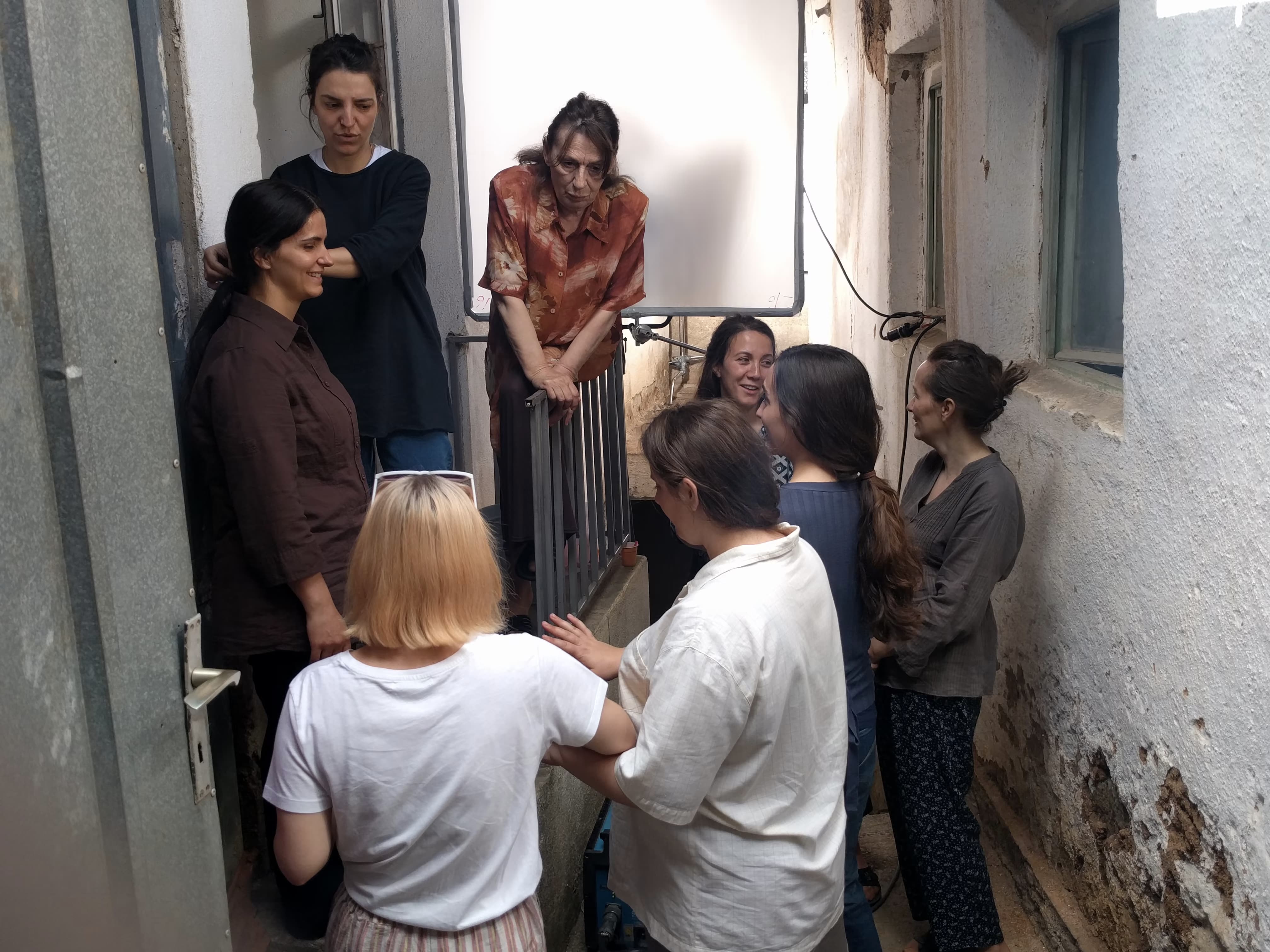
You said something about how you had to figure out that you’re equal as a woman. How does this happen? Is it something conscious?
You just get tired at some point and realize that you’re doing some things, for example, housework more than the men in the house. I don’t think I was discriminated against in my family but I heard statements like ‘clean this up because you’re a woman’ or ‘you’re supposed to clean it well. You have to be neat because you’re a female and a female should be neat.’ So you’re taught these stereotypes and boundaries as a woman but then with education and awareness comes a moment when you realize it’s wrong.
No one prevented me from working and getting an education but we do live in a patriarchal society.
Did you rebel against that?
No (laughs). I slowly changed things in my life.
Kosovo became independent in 2008. Despite having the youngest population in Europe, it still has deeply-rooted patriarchal structures. However, in the past four years three female directors submitted movies for the Oscars, yours got shortlisted. How do you explain this success?
I just think we created good projects, applied, and won. Interestingly enough in filmmaking, there were always women directors. In the first generation, there was one woman, and I think she had it a bit harder. In my class, we were two women out of four students. Not that someone wanted to have a quote, because no one thought about that at the time. But there were always female directors studying, so it was not unusual for a woman to direct a film.
These projects won because they were good, not because someone wanted to achieve some quota for women. They were selected by international jurors and it just happened that there were a lot of really good female filmmakers. 2021 was special: There were four feature films by women traveling to festivals around the world. There was a film in Rotterdam, there was a film in Cannes, and Kaltrina Krasniq’s movie Vera Dreams of the Sea won in Tokyo. Our film won at Sundance and in many other festivals, so it was really a year of women filmmakers.
Could it be that you tell stories differently?
I don’t think it matters if you’re a man or a woman. What matters is that you’re honest with your material, work hard, and research thoroughly, so the story becomes organic to you. I never pretend to know something I don’t and I think people respond to the honesty in my films.
We met Fahrije 10 years ago, when no one asked whether women were well represented or not—not even in Hollywood. We just wanted to portray her character on a big screen. It happened that it became an era—all these films have female characters and people respond to something that hasn’t been adequately represented before. We speak a lot about Kosovo being a patriarchal society but I think the world also needs to do much more about women's rights, even in Switzerland, and in the US.
‘Hive’ was the first Kosovo film to get financing from Switzerland. How easy was it for you to access capital to produce your movie?
It wasn’t easy. We got public funds from the cinematography center of Kosovo but it was a really low budget. We then went into neighboring countries and got funds from Macedonia and on a second try from Albania, but again the amounts were low. It was crucial for us to get more funding. We applied twice in Switzerland, and when we got the money, it was indeed the first time that a film from Kosovo got Swiss financing. This money made the film possible. We still needed to work hard as we didn’t have enough budget for post-production but we pushed for it and finished the movie.
Were there times when you thought about giving up the project?
Yes, of course. I met Fahrjie 10 years ago but at the time I was finishing my graduate studies in the US. I worked on some short films, had two children, and many things kept me from writing her story. Then I started writing in 2015 and we got to work on the project more intensely. In 2016 we started to raise funds. It took us three to four years to get the film financed and we started shooting in 2019.
I loved the character from the beginning but of course, there were moments of doubt. A script consultant even commented: ‘Why don’t you just do a documentary?’ Because I was putting a lot of details in the script. And I thought: ‘Oh my god, maybe he is right! Maybe I’m never going to make a feature film out of this.’ I often have doubts, I wonder whether I'm choosing the right topic or whether I’m going completely the wrong way. But then you try things and you figure out that you were right the first time, and you just go with it. Sometimes you’re happy, sometimes you’re not, but I think it’s really important to keep going and work hard.
And it was all worth it!
In the end, yes.
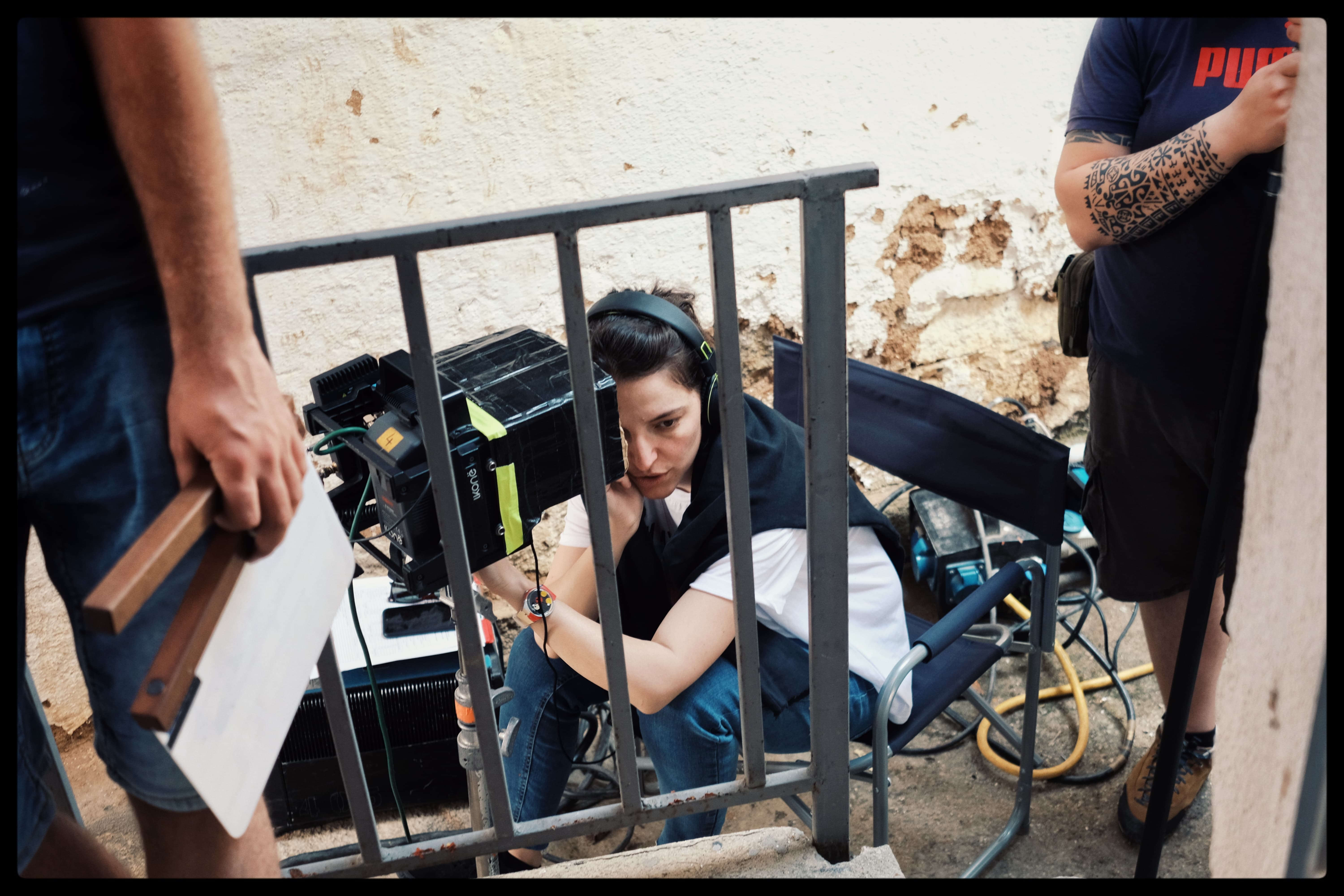
Kosovo is a poor country, a lot of money comes from remittances, from the diaspora sending money to their families in Kosovo. What did this mean for you growing up?
I think when you’re a teenager you don’t realize that. You think your family has all the money in the world and they can just give it to you. I have extended family in Germany and in England, and I always thought well, if they’re there, they make money easily. Then during the war, I went to Germany as a refugee. I met my uncle and cousins and realized how hard it is when you’re an immigrant trying to earn enough money. They were working so hard, sometimes two shifts a day. They had big families of 8-10 people and they would still find a way to support us in Kosovo. Of course, my parents and my brother worked hard as well. We stood together during hard moments.
How did you finance your studies at the Tisch School of Arts in New York?
I got a full-tuition scholarship from the dean which paid for my classes, and I lived with my boyfriend, who is now my husband. The scholarship covered tuition but not my living expenses, and because it was a very intensive program I didn’t have a lot of time to work. I also couldn’t work more than 20 hours a week legally, so I worked part-time for the school’s library and for an Albanian photographer, where my husband worked as well. It was really hard to make ends meet - I was not a rich kid like the others - so it helped to have a partner.
You’re working on your next project, a coming-of-age story based on your adolescence living in occupied Kosovo. Can you tell us more?
It’s in the writing process. It’s still very early but together with a Swiss co-writer we already got development funding from Switzerland. It’s very lucky because in Kosovo we really have very low funding for development and it’s almost impossible to be financed from it. It’s also the first time I have funding so early in the process, so it’s exciting.
Good luck with that!
'Hive' tells the true story of Fahrije Hoti, a widow from the village of Krushe e Madhe, who becomes an entrepreneur after her husband disappeared during the Kosovo War in the 1990s. She joins forces with other widows in the village and produces the Balkan specialty paprika, Ajvar, which the women sell to supermarkets. What sounds simple in reality takes a lot of courage and persuasion. The widows face resistance from men in the village and pressure to stay home and mourn their husbands. 'Hive' is the first feature film by Kosovar Albanian Blerta Basholli and has won several awards. It was also shortlisted for an Oscar nomination.
